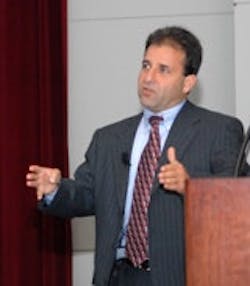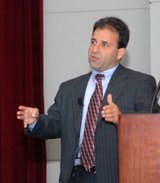Accountability Drives Success in Life Sciences Projects
In the United States, its all around cutting costs. Alan Thomas of Jacobs Engineering Group discussed how pharmaceutical companies are responding to industry pressures.
In the United States, its all around reducing costs, Thomas began, explaining that U.S. pharmaceutical companies are closing sites and cutting manufacturing jobs in the U.S., while simultaneously increasing capital investment in Asia. But its not all bad stufflife sciences is still a very healthy industry, he said.
Whether building in the U.S. or abroad, life sciences companies are finding that they need to embrace the integration of automation with information technologies, added Sommer. Its a marriage of necessity, not love, he explained, attributing the required convergence to overlapping technologies and spheres of influence, the integration of services around increasingly similar devices, and the push to integrate plant-floor information with executive dashboards. Data needs to be turned into information, he said.
Another increasingly important trend on the life sciences project front, Sommer said, is the critical evaluation of new technologies. New approaches are being judged on whether they will improve quality or regulatory compliance, improve operational excellence, or provide positive cash flow. Value must be quantified, Sommer added. Value must be designed into the project, must be measured and must be traceable to the bottom line.
And while the tools that automation professionals have at their disposal have evolved significantly over the past decades, Sommer concluded by summarizing those things that havent changed and continue to key successful capital project execution:
- Control fundamentals are still valid. (Poorly tuned loops can still lead to an unstable process.)
- New or bigger is not always better
- Everything has a larger cost than you think. (When all consideration are taken into account.)
- Everything has a smaller savings than you think. (Overly optimistic views of potential cost savings are common.)
- All components eventually break or become obsolete.
- Data is not information.
- And, finally, Murphy was right. (Things you dont expect to happen, do.)


